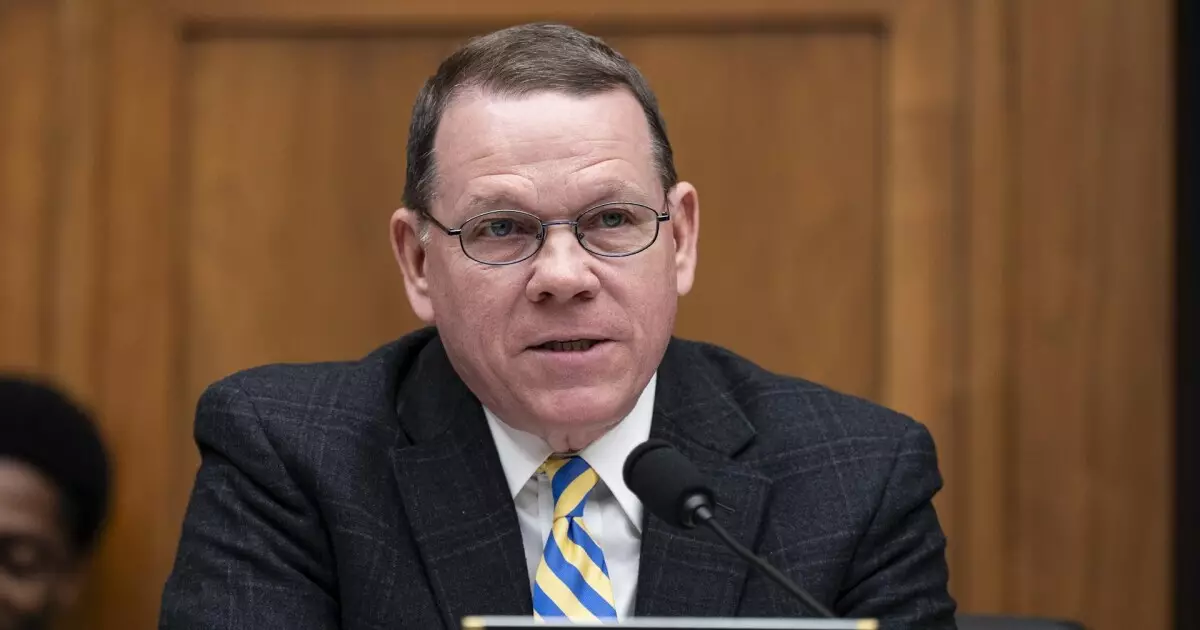As the United States braces for a transformative phase in infrastructure funding, the focus appears firmly set on upgrading transportation networks, particularly roads and rail systems. This strategic direction is underscored by recent proclamations from the House Transportation and Infrastructure Committee. Sam Graves, the newly appointed chairman, expressed an unequivocal commitment to boost infrastructure development, signaling an end to stagnation and a return to proactive governance. “The committee will hit the ground running in 2025,” noted Graves, emphasizing the intention to collaborate with the executive branch—under the forthcoming Republican leadership of Donald Trump—to advance crucial infrastructure priorities.
The strategic prioritization of infrastructure underscores a recognition of its foundational role in the nation’s economic stability and growth. Infrastructure facilitates commerce, enhances connectivity, and provides essential services that support daily life. In this context, the committee establishes a roadmap that aligns federal policies with local needs, representing an evolution in how infrastructure projects may be conceptualized, funded, and implemented.
Navigating the complexities of congressional leadership, Graves recently fended off a competitive assertion for his leadership role amidst whispers of discontent from within the party. The underlying tension highlights the challenges faced by Republican lawmakers as they adapt to shifting power dynamics while also facing intra-party competition. Such struggles are not unique to Graves; they reflect broader issues regarding cohesion among Republicans as they prepare to assert their influence in the upcoming legislative session.
Furthermore, the consolidation of leadership roles within the House Ways and Means Committee suggests a continuation of fiscal policies that align tightly with the party’s economic ideology. Chair Jason Smith’s tenure is characterized by unwavering support for the Tax Cuts and Jobs Act (TCJA), a policy framework that has been both praised and criticized. Smith’s determination to retain the tax cuts highlights a fundamental ideological divide in American politics, emphasizing the Republicans’ commitment to tax reductions, even in the face of potential economic ramifications.
The TCJA, which remains a contentious fixture in economic policy discussions, has drawn ire from various quarters, particularly within the municipal bond market. By eliminating advance refunding options and restricting the state and local tax deduction, the TCJA has financial implications that extend far beyond its surface-level benefits. Critics argue that without careful fiscal management and the exploration of new revenue streams, maintaining the act in its entirety could exacerbate budget deficits and inequities, particularly among middle and working-class taxpayers.
Interestingly, a recent analysis from the House Ways and Means Committee warned of severe consequences should the TCJA expire. Taxpayer burdens could rise significantly—a scenario that could politically motivate the Republican agenda ahead of the 2024 elections. This pivotal moment in U.S. tax policy underscores the intricate ties between legislative decisions and electoral outcomes, suggesting that policymakers must tread carefully as they balance immediate financial relief against long-term economic health.
Another reconfiguration brewing in Washington is the transition within the House Financial Services Committee. With Rep. Patrick McHenry departing from his post, the stage is set for new leadership under Vice Chairman French Hill. Hill’s moderate stance signals potential shifts towards a more cybersecurity-centric legislative agenda, particularly in the realm of cryptocurrency regulation. This evolving focus suggests that the forthcoming Congress will prioritize establishing a regulatory framework that both protects consumers and fosters innovation in the burgeoning digital asset market.
With Hill expected to leverage Republicans’ interests in advancing cryptocurrency legislation, the committee’s future proceedings could see robust debates on innovation against regulation. This duality underscores the complexities facing regulators as they seek to create a conducive environment for burgeoning technologies without compromising consumer safety and market integrity.
The Senate, too, will experience seismic shifts as it enters a new era under Republican leadership. The departure of Sherrod Brown as chair of the Senate Committee on Banking, Housing, and Urban Affairs opens the door for potential regulatory changes reflective of Republican priorities. With Tim Scott likely stepping into the leadership role, it will be intriguing to observe how the Senate approaches issues ranging from consumer protection to financial oversight in a landscape increasingly dominated by digital currencies.
As these political machinations unfold, they will undoubtedly shape the trajectory of U.S. infrastructure spending and fiscal policy in the coming years. The interplay of ambitious infrastructure projects, contentious tax policies, and the ever-evolving landscape of financial regulation paints a complex picture of America’s future priorities. For citizens and policymakers alike, the road ahead presents both challenges and opportunities that will require focused leadership and strategic planning.


Leave a Reply